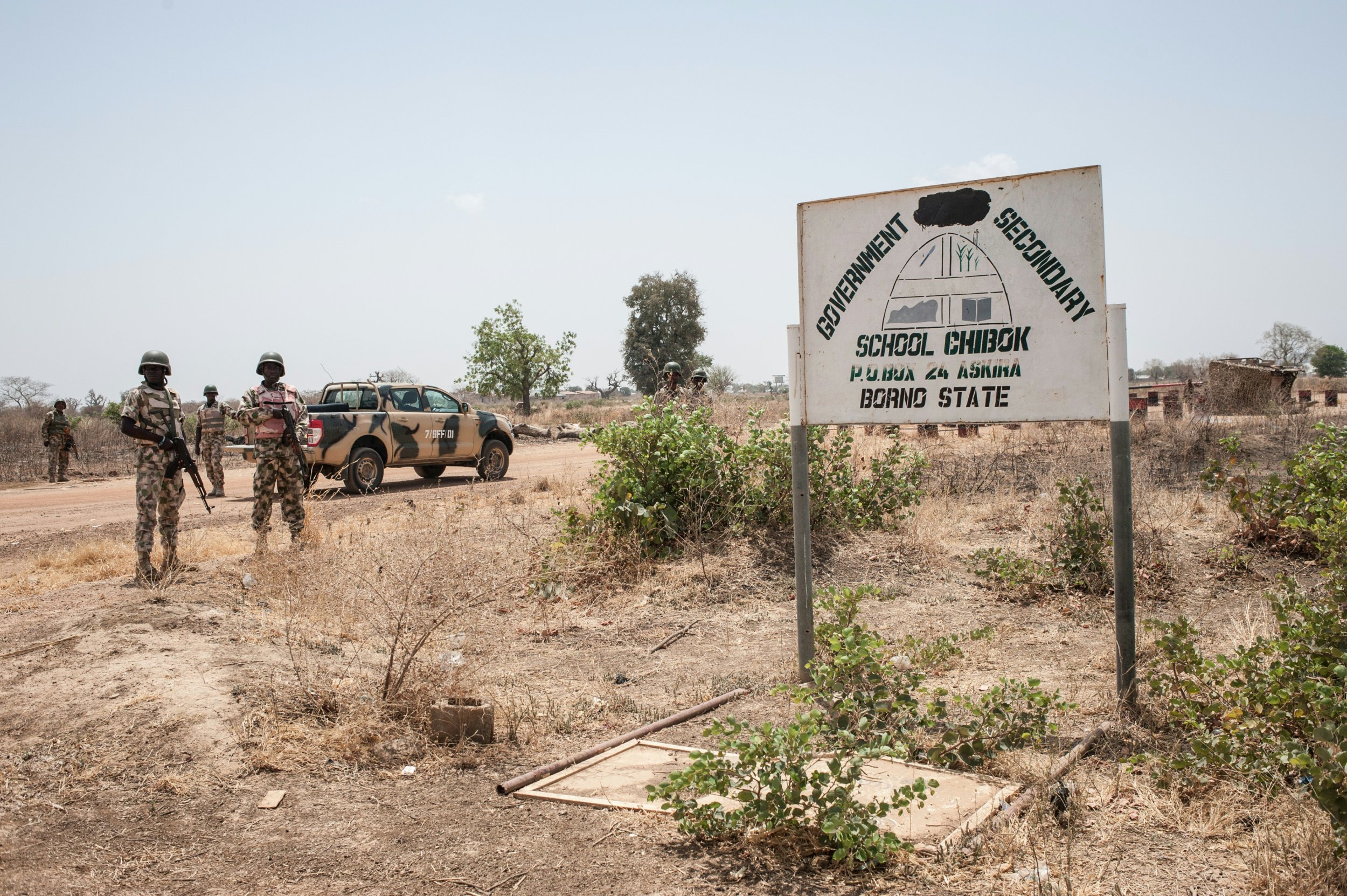
Chibok was inevitable. From the very beginnings of Boko Haram, it was clear that this was a movement which, whatever religious profession it made, was sworn to violence as the basis of human cohabitation and dedicated to the eradication of all known norms of society.
Nigerians could not so readily have forgotten the Maitatsine movement of the early 1980s, one that surely taught the nation to read any hint of religious purification at its most portentous. The Maitatsine—led by a radical Islamic preacher named Mohammed Marwa, whose Hausa nickname means "the one who damns"—had also declared the reading of books a hell-assured crime in the eyes of Allah. They erupted in the largely Muslim Kano state, and their primary targets were fellow Muslims, even before "infidels." The Maitatsine waged war on modernism. They waylaid passenger vehicles, railway trains, killed the men—albeit preserving some for manual labour—took the women and children captive, to be used for household chores—including sexual slavery—in their enclave.
That enclave was right in the heart of Kano, not in some remote and inaccessible part of that ancient, largely Muslim city, now Nigeria's second-biggest metropolis. Their life vocation was cleansing the here and now in readiness for the coming of the last Imam. Their conduct was neo-Luddite, even socialist in pretension—after all, they disapproved of modern luxuries such as radios, watches and motorcars, and so they hacked motorists to death or burnt them in their vehicles. It was all laudable class war, chortled some campus revolutionaries!
The politicians courted them, progressive and reactionary alike. Governors and aspirants called on the Maitatsine's leader in his increasingly fortified enclave, turned a blind eye to his violent territorial takeover, even made monetary donations. When the Maitatsine made their move, they routed the police and frustrated the military—since they simply threw themselves on the soldiers' weapons. The leader of the Maitatsine had progressed—he was now trumpeted as the last Imam. On his death, he would shut the gates of paradise behind him, and all who survived him would be left floundering in the Gehenna that was Earth. It took the Nigerian Air Force bombs to rout them from their redoubt. The uncovered camp was gory. Nothing less than a charnel house, with execution pits, filled with the headless remains of victims.
The social theology of Mohammed Yusuf, the late leader of Boko Haram, was only different in detail and origination. He killed, enslaved, thrived on impunity. He was eventually extrajudicially murdered, which led to a lazy revisionism: Boko Haram would not have taken hold of northern Nigeria if its leader had not been killed. A former Head of State even took it upon himself to visit Yusuf's family and followers, pleading with them to forgive and forget. His peace mission took place on the very day when a national memorial service was being held for United Nations staff who had died in Boko Haram's demolition of their headquarters in the Nigerian capital Abuja. Media houses, police stations, the motorcade of the Chief of Police, churches, "infidels'"—and increasingly fellow Muslims—had already fallen victim. Most single-mindedly targeted, however, were educational institutions: the teachers slaughtered at will, students—including school pupils—waylaid and beheaded. Parents were killed for sending their children to school.
The cant of rationalization held sway, conferring immunity, directly or indirectly, through inadequate response, total inaction and governance groveling. Please, tell us what you want, we are ready to listen. Yet Boko Haram was anything but reticent—indeed, it was voluble. Both in word and deed, it was sworn to eliminate all learning except its own perverted reading of the Koran.
Chibok was merely lying in wait. Not only the failure of anticipation, but the avoidance of legitimate response to crimes against humanity indicts any government and covers its people in vicarious shame. It went beyond dilatoriness to qualify as criminal avoidance. The government dismissed the disappearance of nearly 300 vulnerable girls. The crime scene was obligingly simple: one day, there were 279 live bodies, the next, they went missing. So where were they? I publicly asked a question of the president: if your daughter had been declared missing, even under the most improbable circumstances, would you dismiss it as a political game by the opposition? And if indeed it were, would you not launch an instant fact-finding mission? Alas, for more than two weeks, parents and families were rewarded with disdain!
Not quite. The president's hyperactive wife, who had earlier ordered the arrest of protesters against the kidnappings for embarrassing her husband with false alarms, belatedly found herself compelled to concede an inexplicable vacuum. Her response was to turn a nation's tragedy into a farce of the most grotesque formulation. She appropriated the seat of government, transformed it into a televised world stage where she "performed" a commission of enquiry worthy of Gilbert and Sullivan, but without rhyme, lyric or empathy.
I do not believe in collective culpability. Yet, even today, two years after the tragedy, on encountering my fellow Africans most especially, I still feel an overwhelming urge to apologize, even without provocation, for a vicarious crime whose real perpetrators have yet to understand the enormity of shame that they brought upon us, as a people.
Wole Soyinka is a Nigerian playwright and poet who was awarded the 1986 Nobel Prize in Literature.
Uncommon Knowledge
Newsweek is committed to challenging conventional wisdom and finding connections in the search for common ground.
Newsweek is committed to challenging conventional wisdom and finding connections in the search for common ground.
About the writer
To read how Newsweek uses AI as a newsroom tool, Click here.








